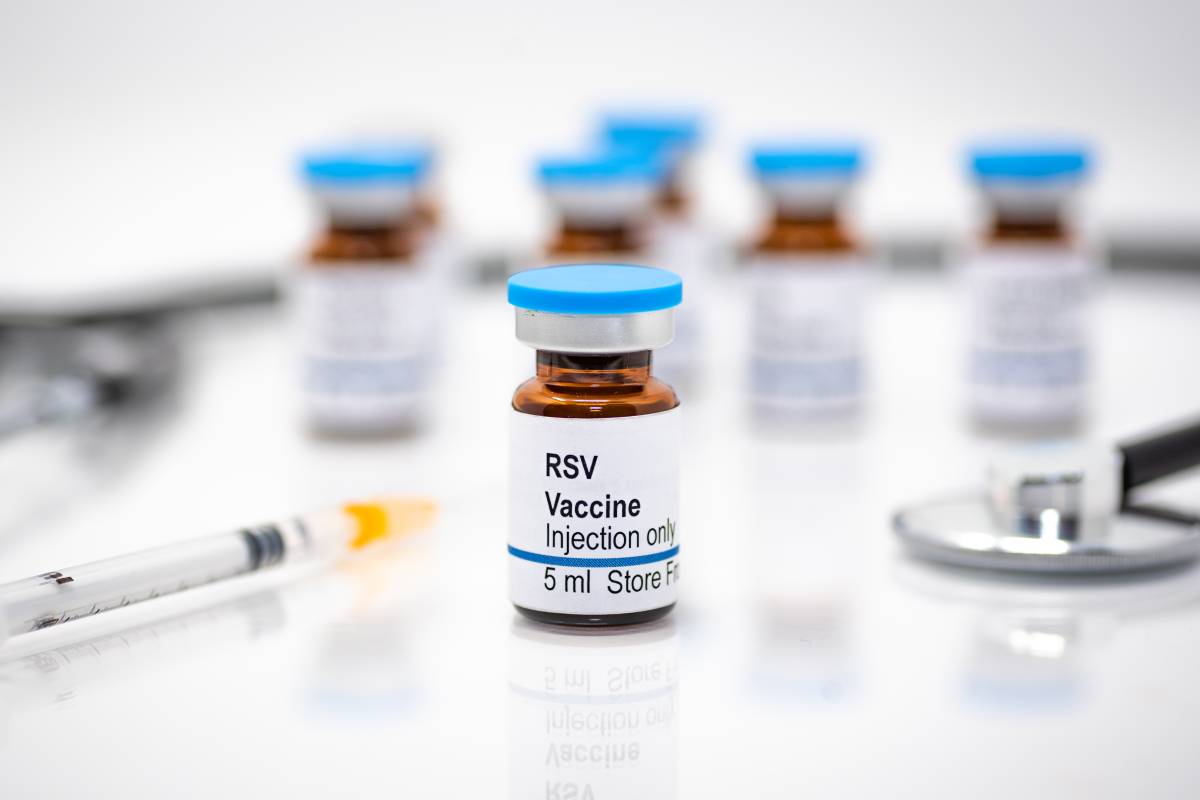Respiratory syncytial virus or RSV is a highly contagious respiratory virus that can be very dangerous for vulnerable populations. RSV typically causes mild, cold-like symptoms in healthy adults. However, the virus is the leading cause of bronchitis and pneumonia in infants and the elderly (7). Furthermore, RSV causes the second highest number of deaths in children under 5 worldwide due to infectious disease, following malaria (1). The search for an effective vaccine that can protect young children and older adults against RSV began in the 1960s, but little progress was made until recent years, in which progress suggests that we can in fact vaccinate against RSV. The development of mRNA vaccines for COVID-19 has led to a renewed focus on the creation of RSV vaccines in the last two years, with a number of vaccines and monoclonal antibody treatments having been recently approved or entering late-stage trials.
In the winter months of 2022, RSV contributed to the surge in respiratory disease cases alongside COVID-19 and influenza, resulting in a large number of hospitalizations in children’s hospitals and ICUs throughout the nation (3). The FDA has recently approved two vaccines for RSV that are intended to prevent serious illness in adults aged 60 and older (3). Both vaccines are bivalent pre-fusion F protein-based vaccines and have demonstrated high efficacy in late-stage clinical trials. The GSK vaccine lowered the risk of severe illness by 94% and symptomatic illness by 83% in adults 60 and older, across all subtypes of RSV and regardless of preexisting conditions (4). The promising trial results suggest that medicine can now do more to protect and vaccinate against RSV.
Several monoclonal antibody treatments are also being developed that can protect infants against the deadly effects of RSV infection, though it’s not yet possible to vaccinate infants. A monoclonal antibody injection is a form of passive immunity that bolsters the immune system to provide direct protection from a targeted virus (1). One such monoclonal antibody treatment, nirsevimab, was proven to safely protect healthy infants from lower respiratory tract infection as a result of RSV. Nirsevimab, a long-acting monoclonal antibody, reduced the incidence of RSV infections that required medical attention by 74.5% in healthy infants (6).
These recent developments in vaccines and treatments for RSV follow decades of stagnation in medical research around RSV vaccines. In the 1960s, a clinical trial involving formalin-inactivated versions of the RSV virus proved disastrous when the vaccine increased the severity of disease after natural infection, resulting in the hospitalization of 80% of tested infants and two deaths (1). Later research showed that these results were likely due to the formalin inactivation of the virus, which produces inactivated viral particles with mostly post-fusion F protein that predisposes the infant to a severe reaction to infection (1).
Infants and elderly patients in medically underserved populations are particularly vulnerable to developing severe illness after an RSV infection. For example, Native American infants in the United States are more than twice as likely to be hospitalized for respiratory syncytial virus compared to other ethnic groups (6). Recently, there has been a surge in RSV cases in many countries in the wake of lifting COVID-19 restrictions, which, combined with the development of COVID-19 vaccines, has reinvigorated RSV vaccine development. Now, clinical trial design, regulation, and data availability will need to create better conditions to compare the results across various trials to determine the safety and efficacy of different RSV vaccines and treatments.
References
- Carvalho, Thiago. “mRNA vaccine effective against RSV respiratory disease.” Nature Medicine, 15 Feb 2023, www.nature.com/articles/d41591-023-00017-7
- Falsey, Ann. “Efficacy and Safety of an Ad26.RSV.preF-RSV preF Protein Vaccine in Over Adults.” The New England Journal of Medicine, no. 388, pp. 609-620, doi: 10.1056/NEJMoa2207566
- Jewett, Christina. “F.D.A. Panel Recommends 2 R.S.V. Vaccines for Older Adults.” The New York Times, 1 Mar 2023, www.nytimes.com/2023/03/01/health/rsv-vaccine-fda.html
- Johnson, Arianna. “First FDA-Approved RSV Vaccines Expected Later This Year: The Top Vaccines And Their Effectiveness.” Forbes, Feb 17 2023, www.forbes.com/sites/ariannajohnson/2023/02/17/first-fda-approved-rsv-vaccines-expected-later-this-year-the-top-vaccines-and-their-effectiveness/
- Papi et al. “Respiratory Syncytial Virus Prefusion F Protein Vaccine in Older Adults.” The New England Journal of Medicine.” no. 388, pp. 595 – 608, doi: 10.1056/NEJMoa2209604
- Pink, Alex. “A New Shot Prevents Serious Illness from RSV.” Johns Hopkins Bloomberg School of Public Health, 30 Mar 2022, publichealth.jhu.edu/2022/a-new-shot-prevents-serious-illness-from-rsv
- Qui, Xirui. “Development of mRNA vaccines against respiratory syncytial virus (RSV).” Cytokine & Growth Factor Reviews, vol. 68, Dec 2022, pp. 37-53, doi: 10.1016/j.cytogfr.2022.10.001
